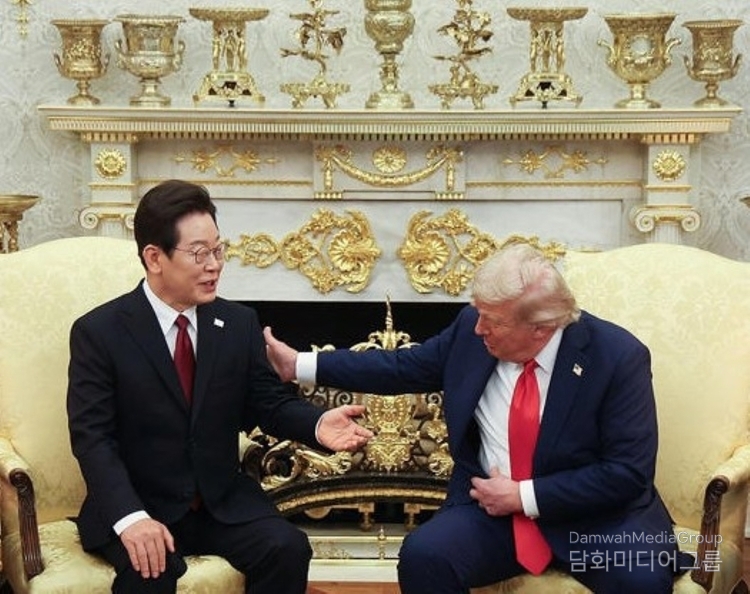By UN Journal Lee Jon-young
The first summit between South Korean President Lee Jae-myung and US President Donald Trump, held at the Oval Office of the White House on August 25 (local time), lasted about 2 hours and 20 minutes.
The summit began amid tension due to Trump's sudden remarks, but soon shifted to a scene of mutual trust and humor, effectively solidifying the alliance.

Prior to the summit, Trump expressed concern on his social media, comparing the political situation in South Korea to a “purge,” and even mentioned the raid on a church and allegations of information gathering at a U.S. military base.
This was considered a taboo in diplomatic circles as it was seen as interference in internal affairs, putting considerable pressure on the South Korean side. Experts analyzed this as “Trump's characteristic preemptive pressure tactic.” This is a strategy of creating an unfavorable situation before negotiations begin and then obtaining concessions during the talks.
President Moon calmly explained the situation, emphasizing that “it was fact-checking by the special prosecutor.” Rather than directly refuting the allegations, he focused on easing tensions and building trust through institutional explanations.
President Trump also clarified his position, saying, “I am confident that it was a misunderstanding,” and the controversy did not spread further in the meeting room. This is considered an example of President Lee successfully resolving an unexpected situation relatively smoothly.
Afterward, the two leaders continued their conversation by praising each other's achievements and accomplishments. President Trump revealed his personal friendship by saying, “Congratulations on your election victory,” and President Lee responded by actively praising the Oval Office and Trump's achievements.
In particular, President Lee's joke, “Please build Trump World in North Korea so we can play golf,” and his remark, “If President Trump is a peacemaker, then I am a pace maker,” succeeded in lightening the mood and making the audience laugh. This can be seen as a “customized humor diplomacy” strategy that takes into account the other party's personality.
Both sides shared practical economic and security cooperation agendas, including military equipment cooperation and contributions to the shipbuilding industry. Despite the tension before the talks, the “stability of the alliance” was highlighted as the two countries confirmed their alliance.
Trump's unique negotiation style, which involves taking the initiative with unexpected remarks and shifting the mood with laughter and praise during talks, was once again confirmed. This shows that the unpredictability and volatility of President Trump must be taken into account in future negotiations between the two countries.
President Lee Jae-myung's diplomatic test. Despite facing unexpected challenges at his first summit meeting, he demonstrated stable leadership by shifting the mood through explanations and humor. At the same time, he also achieved diplomatic success in “building a certain degree of personal rapport with Trump.”
Although the summit was fraught with tension and concern from the outset, it is expected to be recorded as an occasion that reaffirmed the strength of the ROK-U.S. alliance and built trust between the two leaders. However, given that President Trump's unpredictable actions and remarks could become a diplomatic variable in the future, the ROK government faces the challenge of refining its response strategy.




